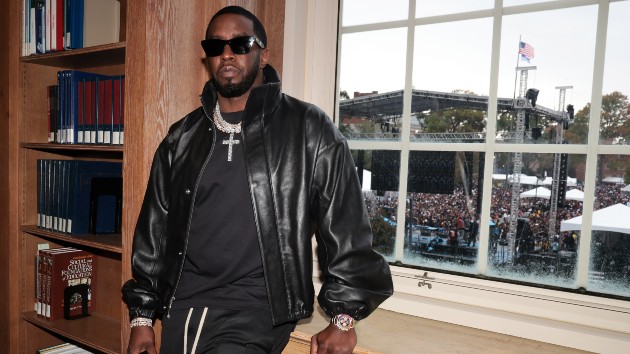New York Gov. Kathy Hochul vetoes Grieving Families Act, angering some loved ones of Buffalo massacre
Written by ABC Audio. All rights reserved. on January 31, 2023

(ALBANY, N.Y.) — New York Gov. Kathy Hochul has vetoed a bill that would have overhauled the state’s 175-year-old wrongful death statute, angering some families whose elderly loved ones were killed in a Buffalo supermarket mass shooting.
The Grieving Families Act would have allowed courts to consider grief and loss when determining how much a family can be compensated by insurance companies, regardless of the income-earning potential of the deceased.
The law would have also extended the time permitted to bring a wrongful death action to court by 18 months and allow families to claim compensation for funeral expenses and loss of companionship.
Some relatives of the 10 people killed in a May 14, 2022, mass shooting at a Top’s grocery store in Buffalo had called on Hochul to sign it the bill, saying the current statute, which dates back to the Civil War, devalues and discriminates against young people and the elderly, like many of those who died in the mass shooting.
“It’s a slap in the face,” retired Buffalo Fire Commissioner Garnell Whitfield, whose mother was among the 10 people killed in the attack, told ABC News on Tuesday. “Obviously my mom was 86 years old, but what makes her life any less valuable than someone who’s working?”
Mark Talley, whose 62-year-old mother was killed in the Buffalo attack, told ABC News that he was not surprised by Hochul’s decision. “When you work in government you’ve got to have an excellent ability to smile in people’s faces and then stab them in the heart once they turn around,” Talley said.
The deadline for Hochul to sign the bill was midnight Tuesday.
In an op-ed published in the New York Daily News hours before the deadline, Hochul said, “Experts have highlighted concerns that the unintended consequences of this far-reaching, expansive legislation would be significant.”
“It is reasonable to think that the legislation as drafted will drive up already-high health insurance premiums, adding significant costs for many sectors of our economy, particularly hospitals that are still recovering from the pandemic and struggling to stay afloat — including public hospitals that serve disadvantaged communities,” Hochul wrote. “This is a question that would benefit from careful analysis before, not after, passing sweeping legislation.”
She suggested the bill was hastily passed by the state Legislature at the end of the 2001-2022 legislative session, noting that it was approved by a committee and sailed through the Assembly and Senate on the same day.
“What was missing was a serious evaluation of the impact of these massive changes on the economy, small businesses, individuals, and the state’s complex health care system,” Hochul wrote in her op-ed.
She blamed the Legislature for the veto, saying it failed to negotiate a scaled-down bill.
“I also recognize that the law as it currently stands, valuing lives based on earning potential, reinforces historic patterns of structural inequity and racism,” Hochul wrote. “This is one of many areas of unfairness that remain in our legal system, we must never give up on the important work of making needed change.”
Tim Stebbins, executive director of the Lawsuit Reform Alliance of New York, praised Hochul’s decision, saying, small businesses and the health care workforce are “breathing a collective sigh of relief.”
“Now is (the) time to get to work and rein in New York’s already out of control litigation climate,” Stebbins said in a statement. “To bring balance to the system, reduce unintended consequences, and avoid increasing costs at a time when we can least afford it, lawmakers must work with stakeholders to craft a bill that benefits all. The health and prosperity of the Empire State’s economy depends on it.”
The New York Trial Lawyers Association, which called on Hochul to sign the bill, released a statement, saying the governor “sided with insurance companies, the health care industry, big corporations, and anyone else who doesn’t want to be held accountable for the negligent killing of a person.”
State Assemblymember Helene Weinstein and state Sen. Brad Hoylman-Sigal, who both sponsored the bill, released a joint statement, saying they were “disappointed” with the governor’s decision to veto the legislation.
“Instead, the Governor has proposed a half-baked compromise that would only delay long overdue reforms to this archaic 175-year-old law while protecting negligent corporations and institutions from any accountability,” the statement reads. “New York’s wrongful death statute predates the Civil War and is widely regarded as the most regressive of its kind in the nation.”
Copyright © 2023, ABC Audio. All rights reserved.






